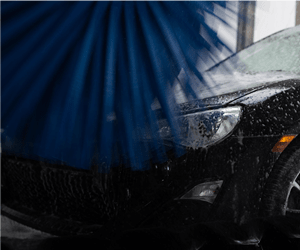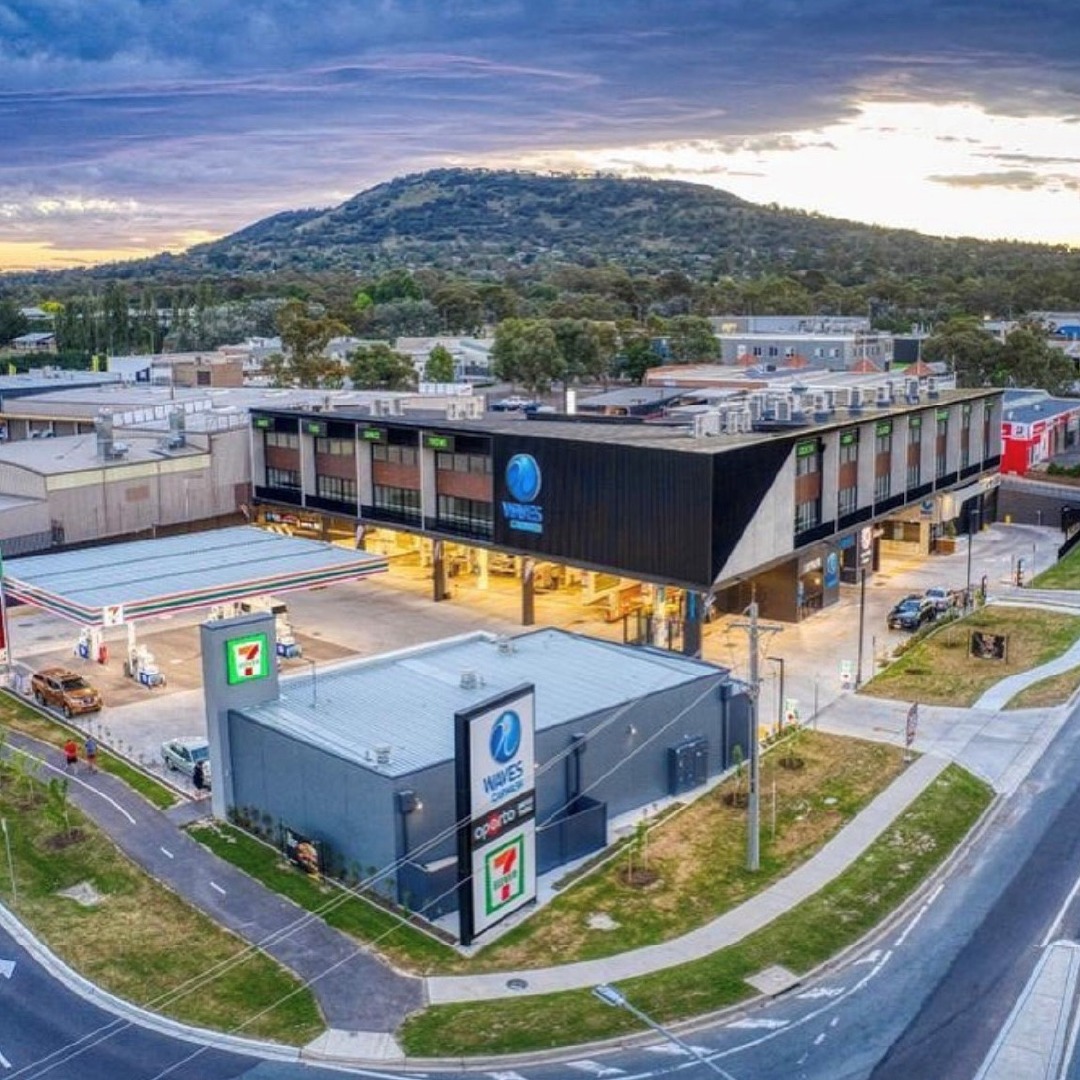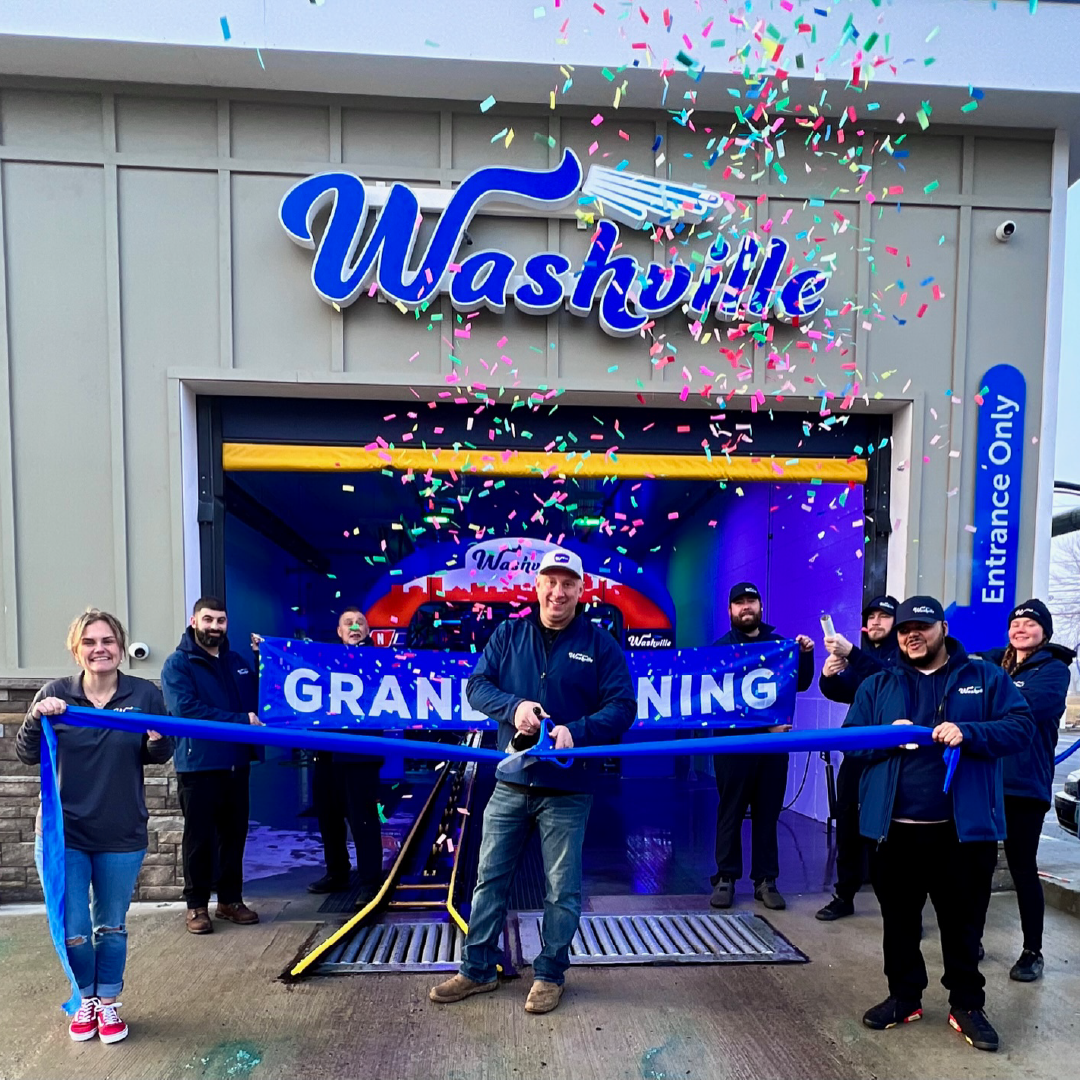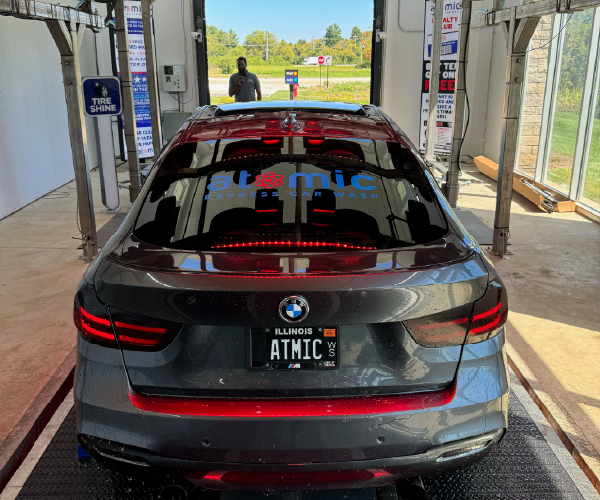
Innovations in Customer Service
October 1, 2016
6 minute ReadWhat do a car wash, a coffee shop and a retail technology giant like Amazon have in common? They are all service-based businesses that have to set themselves apart from the competition if they want to thrive. For companies like these, it’s not just the product and price that keeps customers coming back; it’s also the specialized service.
This could be as small as a cashier who remembers the names of the regulars, or as monumental as a company that services a car in half the time of its competitors. But in today’s crowded markets, a car wash business must offer more than just a clean car.
Amazon CEO Jeff Bezos attributed the secret to Amazon’s success to a willingness to go the extra mile for the customer. In 2004, a year when the value of Amazon’s brand had jumped 22 percent, Bezos told Businessweek, “We see our customers as invited guests to a party, and we are the hosts. It’s our job every day to make every important aspect of the customer experience a little bit better.” Today, the best car wash operations are adopting a similar approach to service, channeling their energy and inventiveness into exceeding customer expectations.
Give’em what they want
One of the fundamentals of good service is to anticipate the customer’s needs. Car wash owner Karl Murphy did just that when he launched Get Spiffy, a mobile car wash service that enables customers to schedule and pay via their smartphones. As Murphy puts it, “We show up with an app, and we can do all the work for you. All you do is tap out a couple of questions on your phone, enter your credit card, leave your keys at the front desk and it is done.” Their wash van goes to the customer, cleaning the vehicle while he or she is at home or work.
Convenience is the core value that Get Spiffy brings to its customers. But before Murphy could provide this to his customer, he first needed to do what all entrepreneurs need to do — realize there was a demand for it.
Murphy bought his first car wash, Carolina Auto Spa, in 2003, and opened a second location three years later. His plan was to build a new location every two or three years in the Raleigh/Durham market, but the 2008 financial crisis coupled with a shortage of good commercial real-estate slowed Murphy’s expansion. By 2010, “There was a nexus of us trying to expand but finding it difficult and the proliferation of smartphones, the app economy, like Uber and Lyft,” Murphy said.
During this same time, Murphy had completed some renovations at one of his facilities, a sort of retail clean up, freshening it up with new tile, paint and furniture. When he asked one of his customers what she thought of the new look, she told him frankly, “Karl, I love what you did but I really have no desire to experience a car wash. I just want the car clean. I come here because you do a good job, you have a nice place and you have a nice staff. But at the end of the day, I just wish you would come to work and wave a magic wand over my car. And I would pay you more for that.”
A light bulb went off in Murphy’s head. A customer had expressed a need, and outside of mobile detailing, the industry was not meeting that need. He asked himself, “So, what would mobile detailing look like if Starbucks or Target did it?” Drawing on his background in selling technology, Murphy set his mind to developing an app, and by 2013, Get Spiffy had launched.
According to Murphy, the initial app was a success with about a 100 customers, but there were some software issues, “so we built version two and we had about 1,000 customers on it. We started servicing customers all over the place, adding trucks and rolling out our brand. We’ve grown over a 100 percent every year since 2013.” Today, Murphy’s company has grown to 25 trucks serving Raleigh, Charlotte and Atlanta.
Pay attention to smart technology
More and more, customers are drawn to businesses that have found a way to integrate smartphone technology into their services. While apps aren’t the norm in the car wash industry yet, smartphones are playing an increasingly larger role in service. Alex Vlasto, VP of Marketing for the consulting firm StellaService, a consulting firm that specializes in growth through customer service, says, “With so much choice at their fingertips, consumers today are more fickle than ever before. One negative experience cannot only result in a customer going to the opposition, but also sharing their negative sentiment with their social followers.” Vlasto recommends that businesses pay attention to what’s being said about them online, so they can use this feedback to improve the service before too much damage is done.
In today’s economy, car wash operators can no longer afford to turn a blind eye to technology. But that doesn’t mean they have to dive head-first into creating an e-commerce website or launching an app. Instead, they should find ways to use technology to make what they already do better.
“The advantage that small businesses have over larger companies is the ability to build deeper relationships with customers,” Vlasto said. “In today’s ecommerce world, customers increasingly crave this more personal and humanized touch. Small businesses should play into this, by focusing on building rapport with regular customers,” he said. At the end of the day, personalized, best-in-class service will eventually lead to positive reviews online, which ultimately will lead to more business.
Add value to the environment
The most successful small businesses put as much care into the customer’s experience as they do into their product or service. One way to do this is to think of a retail location as a place of comfort and community. Starbucks, for instance, has transformed itself from one coffee shop in Seattle into an international retailer by striving to be the third place people frequent on a daily basis — the first two being work and home. According to the company website, from the very beginning Starbucks CEO Howard Shultz wanted to create “a place for conversation and a sense of community.”
Typically, small businesses are in a better position than large ones to offer this kind of personalized, community-oriented experience. For example, Fair Folks & a Goat, a café and design store in downtown Manhattan, was able to generate that sense of community by tweaking the traditional retail and coffee shop models. At Fair Folks & a Goat, customers have the option of purchasing a $35 monthly membership, which buys them all the coffee, tea and gourmet espresso drinks they can handle. While sipping lattes, customers browse the clothes, gifts and home décor items for sale around the café. Owner Anthony Mazzei says some customers do stumble in from off the street but more likely come in groups together. “Folks are more often brought into the cafe by a member, or with another friend who both come in to consider membership together. Our shop and membership is very often a shared experience between friends. And the bond created by being ‘our place’ for a group of friends is a very strong one for us.”
This same approach has worked for Magic Hand Carwash, an Australian franchise that has set itself apart by adding a café to the car wash site. Magic Hand Carwash Managing Director Claude Roda says that the idea for a café car wash came from his father, the company’s founder, who had a vision for an extraordinary service experience that would add value to the wash itself. “The environment offers good quality coffee, comfortable surroundings, as well as magazines and newspapers to read. The experience is really about pampering your car and pampering yourself for half an hour,” Roda said.
Today, there are 15 Magic Hand Carwash operations that include a café. Additionally, there are another 33 Magic Hand operations located at malls where customers can run errands and take care of the shopping while their car is cleaned. Even though Roda believes expertise and attention to detail is his customers' first priority, he understands that their experience is more complex than that. He says, “The warm friendly service, getting to know the customers personally, great coffee — all of this adds depth to their journey.” Car wash owners everywhere would do well to embrace this perspective, challenging themselves to uncover new ways to make their customer’s experience easier, faster or simply better. In the long run, this shift in thinking will not only pay off in happier customers, but also many more of them.







